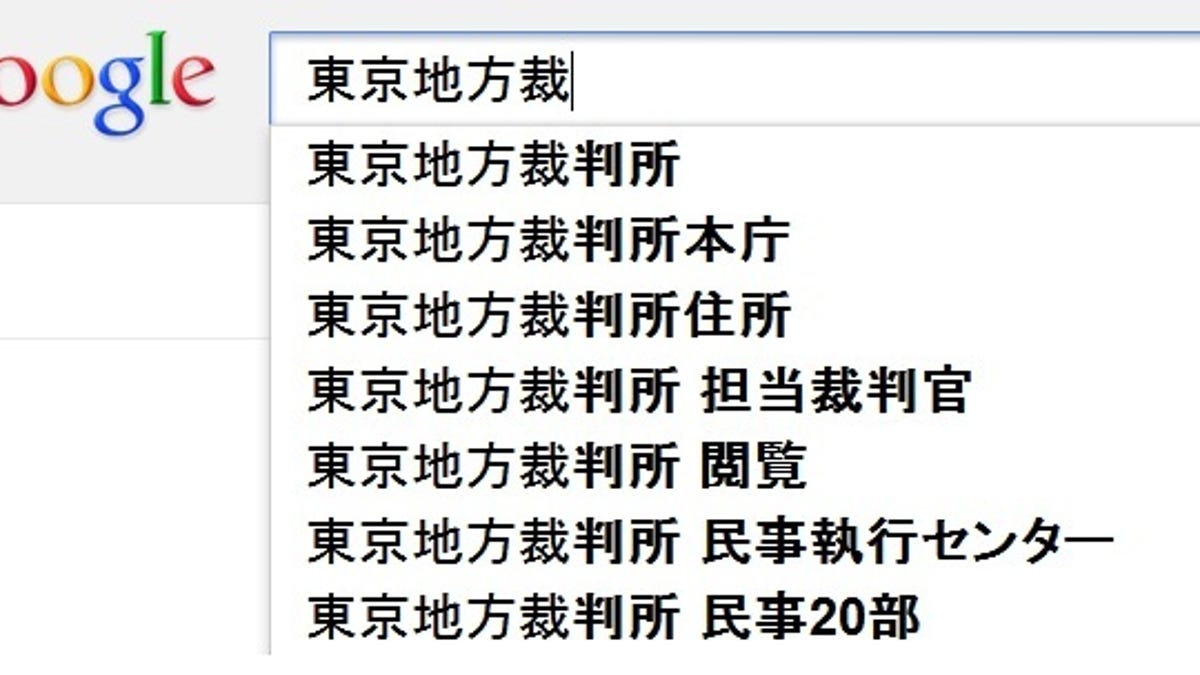Google loses autocomplete defamation suit in Japan
The search engine is ordered to change its autocomplete function and pay damages to a man who sued saying his name was being linked to crimes.

A Japanese court has ordered Google to modify its autocomplete function so that it does not suggest a connection to crimes when a Japanese man's name is entered, adding that the Web giant must pay 300,000 yen ($3,100) to the plaintiff.
The ruling by the Tokyo District Court comes after its injunction last year backing the plaintiff, a Tokyo man who has not been identified. Google did not follow the injunction.
The man claimed that when Google users begin typing his name, the search engine would automatically suggest criminal acts he did not commit. The links would produce articles slandering him, he said.
The plaintiff said that along with the autocomplete function slandering him, he unexpectedly lost his job and was repeatedly rejected when he applied for other work.
"A situation has been created by which illegally submitted documents can be easily viewed," chief judge Hisaki Kobayashi was quoted as saying by the Mainichi Shimbun newspaper.
The court did not rule that the search functions were directly responsible for the loss of the plaintiff's job.
But the decision marks the first time a Japanese court has ordered Google to change these search terms, according to the plaintiff's lawyer, Hiroyuki Tomita.
"This [autocomplete feature] can lead to irretrievable damage, such as job loss or bankruptcy, just by displaying search results that constitute defamation or violation of the privacy of an individual person or small and medium-size companies," Tomita was quoted as saying last year by Kyodo News.
Google runs data centers in Hong Kong, Singapore, and Taiwan, but not in Japan, and so the court can't compel it to make the changes.
Google told CNET it had no comment on the case, but is studying the matter carefully.
The decision follows Google's loss of a case in Italy and another in France over autocomplete results.
Earlier this year, an Australian surgeon sued Google in California over autocomplete suggestions that he was bankrupt. Google, meanwhile, has indicated that it is not responsible for autocomplete results because they are generated automatically.
(Via AFP)

